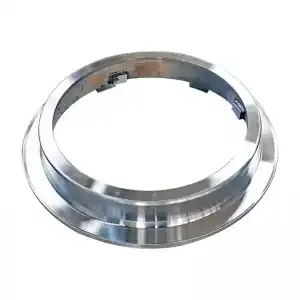- Afrikaans
- Albanian
- Amharic
- Arabic
- Armenian
- Azerbaijani
- Basque
- Belarusian
- Bengali
- Bosnian
- Bulgarian
- Catalan
- Cebuano
- China
- China (Taiwan)
- Corsican
- Croatian
- Czech
- Danish
- Dutch
- English
- Esperanto
- Estonian
- Finnish
- French
- Frisian
- Galician
- Georgian
- German
- Greek
- Gujarati
- Haitian Creole
- hausa
- hawaiian
- Hebrew
- Hindi
- Miao
- Hungarian
- Icelandic
- igbo
- Indonesian
- irish
- Italian
- Japanese
- Javanese
- Kannada
- kazakh
- Khmer
- Rwandese
- Korean
- Kurdish
- Kyrgyz
- Lao
- Latin
- Latvian
- Lithuanian
- Luxembourgish
- Macedonian
- Malgashi
- Malay
- Malayalam
- Maltese
- Maori
- Marathi
- Mongolian
- Myanmar
- Nepali
- Norwegian
- Norwegian
- Occitan
- Pashto
- Persian
- Polish
- Portuguese
- Punjabi
- Romanian
- Russian
- Samoan
- Scottish Gaelic
- Serbian
- Sesotho
- Shona
- Sindhi
- Sinhala
- Slovak
- Slovenian
- Somali
- Spanish
- Sundanese
- Swahili
- Swedish
- Tagalog
- Tajik
- Tamil
- Tatar
- Telugu
- Thai
- Turkish
- Turkmen
- Ukrainian
- Urdu
- Uighur
- Uzbek
- Vietnamese
- Welsh
- Bantu
- Yiddish
- Yoruba
- Zulu
10 сар . 31, 2024 13:57 Back to list
Overview of Aluminum Alloys Suitable for Casting Applications in Manufacturing
Aluminum Alloys for Casting
Aluminum casting alloys are essential materials in various industries, offering lightweight, high strength, and excellent corrosion resistance properties. This unique combination makes aluminum alloys a preferred choice for applications ranging from aerospace to automotive and consumer products. Understanding the types, properties, and applications of these alloys is crucial for engineers and manufacturers alike.
Aluminum Alloys for Casting
One widely used aluminum casting alloy is A356, which contains silicon and magnesium. A356 is known for its excellent mechanical properties, making it ideal for high-performance applications, such as aerospace components and automotive parts like wheels and engine blocks. Another popular choice is A380, recognized for its superior casting characteristics and high strength-to-weight ratio. This alloy is often used in the production of industrial machinery, appliance housings, and electronic housings due to its excellent surface finish and enhanced fluidity.
aluminum alloys for casting

The aluminum casting process itself can be executed through various techniques, including sand casting, investment casting, and die casting. Each method offers distinct advantages. For example, die casting allows the production of intricate shapes with high precision, making it suitable for mass production. In contrast, sand casting is more flexible and cost-effective for low-volume production runs and complex designs.
When selecting an aluminum alloy for casting, it is essential to consider the specific requirements of the application. Factors such as strength, corrosion resistance, and thermal conductivity play an important role. For instance, in marine applications, corrosion resistance is paramount, making aluminum alloys with higher silicon content ideal. Conversely, for structural components that must endure high loads, a high-strength alloy such as 7075 may be more suitable.
In summary, aluminum casting alloys offer a diverse range of properties that can be tailored to meet specific application needs. With ongoing advancements in alloy formulation and casting technologies, the versatility and performance of aluminum alloys continue to improve, promising new possibilities for innovative designs in numerous sectors. As industries strive for more efficient and sustainable solutions, aluminum casting alloys will undoubtedly remain at the forefront of materials science, paving the way for enhanced performance and application effectiveness.
-
Casting Bollards for Sale - Custom & ODM Solutions
NewsMay.08,2025
-
Custom Commercial Hot Water Heat Exchangers High-Efficiency & Durable
NewsMay.08,2025
-
Premium Casting Parts Supplier - Custom Grey Iron, Stainless Steel & Brass
NewsMay.07,2025
-
FRC Concrete Pipe Mold/Mould Bottom Ring Durable Precision Design
NewsMay.07,2025
-
Original Chinese Factory Supplier for Durable Concrete Pipe Mold Bottom Rings
NewsMay.07,2025
-
High-Strength Sodium Slicate Sand Casting Custom & ODM Services
NewsMay.07,2025


